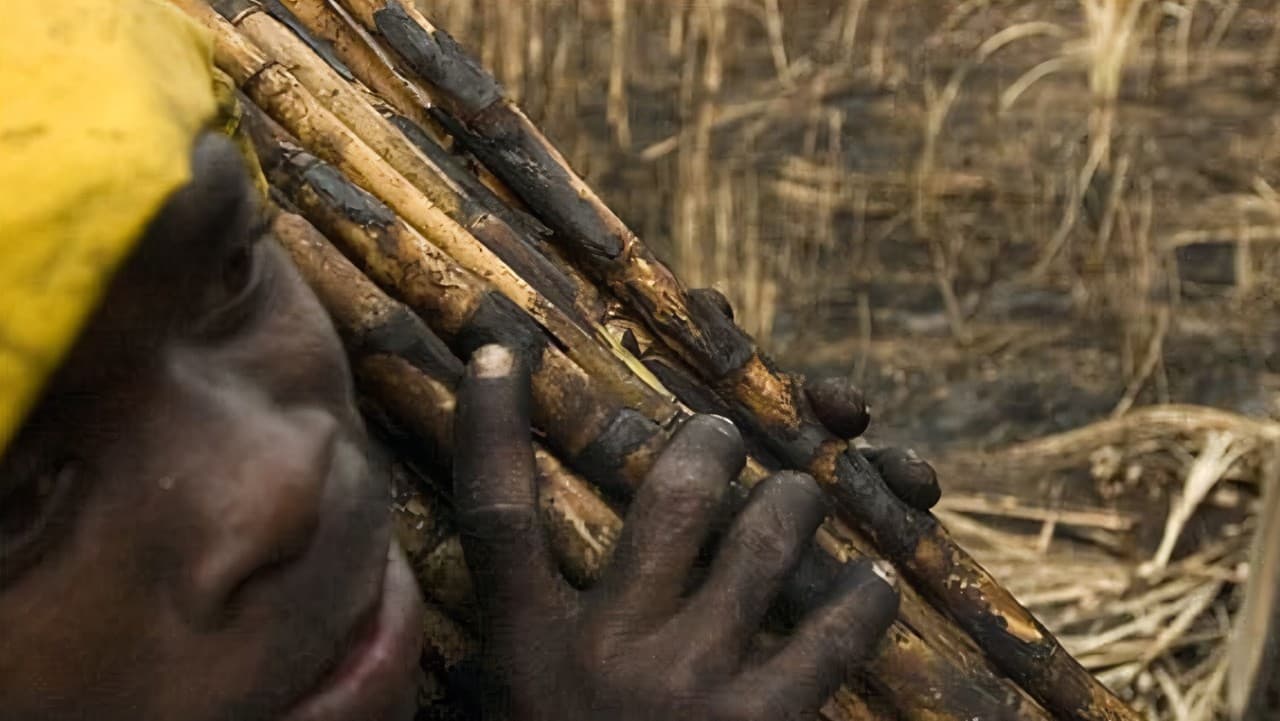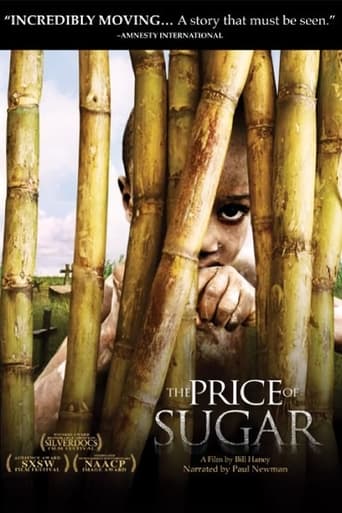

I'm a Dominican immigrant who, since 10 years ago, calls the U.S. home. I'm the descendant of Jamaican immigrants who was born in a Dominican batey a "sugar baby," if you will. I lived and worked hand-in-hand with many Haitian immigrants who, faced with extremely deplorable economic and living conditions in their homeland, cross the border to find opportunities for them and their families.I had the opportunity to watch this movie in Atlanta, and I was appalled at the manipulation of facts and images, as well as some blatant falsehoods that appear in this film, which has been promoted as "facts-based." For starters, the Haitian immigration into the Dominican Republic is no different than that of Dominicans to the U.S. It's people who leave their own country looking for a better life. No one forces them to leave; nor are they "recruited" or loaded onto trucks and taken across the border. Believe me, there's no need to that. They want to leave Haiti as, in their own country, they can't even survive! The movie states that Haitians are discriminated against. That is just not true. The Haitians who lived in the bateyes where I grew up received the same treatment as everyone else, including children born of Dominican parents. We were all paid the same.I can assure you that we were not treated differently that the Haitians. We're all paid in cash, not vouchers as the movie states. That's not to say that conditions in the sugar fields, and in the whole agricultural industry in the Dominican Republic, need not be improved.Today, there are more than one million Haitians in the Dominican Republic, most of them illegal immigrants. Most of them work in construction, tourism and informal trade, and less than 1% work in the sugar cane fields; however, The Price of Sugar distorts the numbers and says that 30,000 are smuggled annually.Finally, and as an immigrant that was given an opportunity in this great country, I equate my situation here to that of the Haitians in the DR. When I first came to the U.S., even though I had a Bachelor's degree, I worked two shifts as a dish-washer at a hotel. It wasn't easy work, but I had made that choice in hopes of having a better future. That's the same choice that Haitian immigrants make when they cross the border into the Dominican Republic, be it to work in the sugar fields, construction or whatever else. They've made that choice hoping for a better tomorrow. They're free to move in and out of the bateyes as they wish, and to go back to their country any time they want. However, they choose to stay because, even though the Dominican Republic is a very poor country, they have a better life.Therefore, I would appreciate it if we can keep the facts straight and call The Price of Sugar a work of fiction instead of a documentary.
... View MoreI haven't seen the movie. But I will. A free market doesn't rely on hundreds of millions of dollars of annual subsidies to prop up a business, as the sugar industry does. In fact, the sugar industry in the U.S. has contributed significantly to Florida's environmental degradation. They have horribly disfigured our democracy and they have influenced greatly our foreign policy towards Cuba, completely counter to American public opinion. A previous commenter must have some personal interest in the sugar industry, or they are completely ignorant as to the realities of what a true free market is. If the previous commenter who bashes the movie was honest and had some integrity they would turn their venom towards the sugar industry in Florida from which our citizens suffer the pollution of our democracy and the defiling of our environment. The history and truth is right there for anyone to read. See the movie.
... View MoreI have worked in these sugarcane fields, helping the people working there. I have seen and been told things that "researching" will not tell you. Of course living in the Dominican and getting attached to the Haitians you are going to have a bias especially if you're making a documentary. These people at times are forced into going to the Dominican. There are Dominican officials that there job is to find Haitians and bring them over. They are told that they are getting a good paying, decent job and then they are brought to the fields and aren't allowed to leave. There are guards with guns or machetes stopping them from leaving. How is that not slavery? Maybe before you go after a film you should visit and live in the culture and situation that is being filmed.
... View MoreI had heard some time ago a story about how modern day Haitians were going through some form of slavery in the fields of Dominican Republic. That's all I heard and never heard anything more on the topic. However, being of Dominican origin, the relationship between Dominican Republic and Haiti had always interested me. Many studies have been published about this but are typically aimed at anthropologists thereby making this topic unknown to the general public, that is, until now.With the promise of better pay and quality of life in comparison to their home in Haiti, Haitians are driven by the bus load into a terrible trap, forced labor on a sugar cane field run by the mysterious sugar barons known as the Vicini family who have ties within the Dominican and American governments. They are forced to stay within a labor camp infested with all kinds of dangers and with no way to quit or to walk out without the risk of being shot. But thanks to the work of Father Christopher Hartley, a missionary priest sent to a nearby parish where the Bateyes (slave compound) are located. Through his work, the lives of some of the Haitians do improve but with it come the death threats and riots instigated by the Vicini to oust the priest.This documentary is important for both Dominicans and for Americans to be educated on a topic that rarely ever makes a blurb in the papers. Slavery should not exist in the twentieth century yet there it is in our own backyard.
... View More